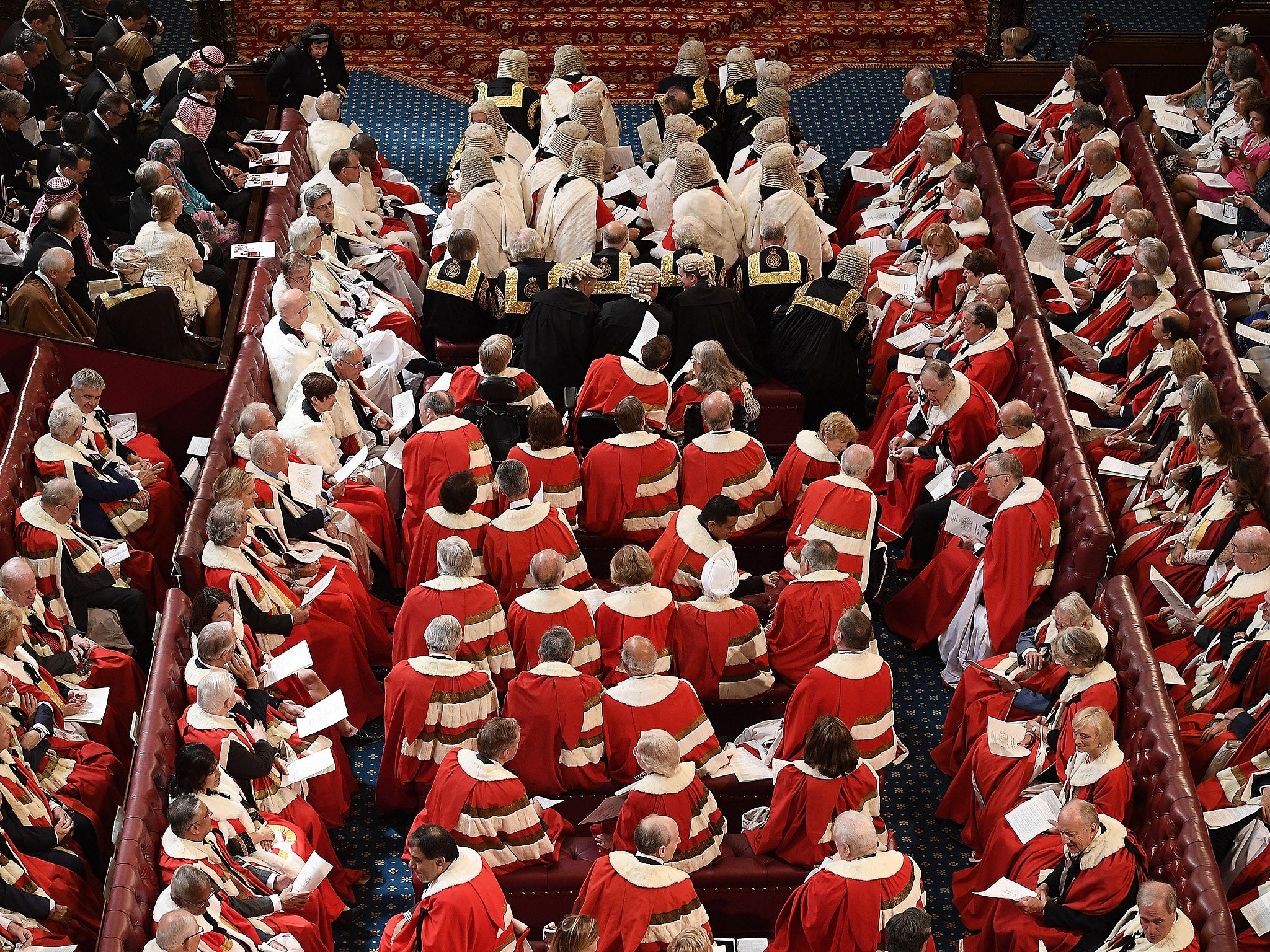House of Lords: New expenses row as 16 peers claim around £400,000 despite failing to contribute
Peers accused of 'gaming the system' by claiming thousands of pounds in expenses and allowances without speaking in debates, sitting on committees or asking questions

Your support helps us to tell the story
From reproductive rights to climate change to Big Tech, The Independent is on the ground when the story is developing. Whether it's investigating the financials of Elon Musk's pro-Trump PAC or producing our latest documentary, 'The A Word', which shines a light on the American women fighting for reproductive rights, we know how important it is to parse out the facts from the messaging.
At such a critical moment in US history, we need reporters on the ground. Your donation allows us to keep sending journalists to speak to both sides of the story.
The Independent is trusted by Americans across the entire political spectrum. And unlike many other quality news outlets, we choose not to lock Americans out of our reporting and analysis with paywalls. We believe quality journalism should be available to everyone, paid for by those who can afford it.
Your support makes all the difference.The House of Lords has been mired in a fresh expenses row as new research showed that 16 peers claimed around £400,000 without speaking in any debates or submitting any questions for an entire year.
So-called 'silent' peers - which make up nearly one in 10 of the 799-strong upper chamber - have been accused of "gaming the system" by pocketing thousands of pounds in expenses and daily allowances.
Of the 73 peers who failed to speak, sit on committees or submit any written questions during the 2016/17 session, 16 members claimed more than £10,000 each in expenses, according to analysis by the Electoral Reform Society (ERS).
Labour's Lord Kirkhill claimed the most at £43,896 followed by Scottish Labour's Baroness Adams on £41,287, the research shows.
It comes after a recent probe revealed 115 peers claimed more than £1.3m despite failing to speak for an entire year but a Lords spokesman argued at the time that speaking in the chamber was only one of the ways members could contribute.
The new research prompted calls for a move away from “couch-potato peers” towards an elected upper House with a smaller number of salaried peers, instead of current rules where members do not receive a salary but can claim up to £300 for sitting days.
Darren Hughes, Chief Executive of the Electoral Reform Society, said: “The fact that nearly one in ten peers are failing to contribute to the work of the House is bad enough. But it leaves a nasty taste when a significant chunk of those are claiming more than the average worker takes home in a year.
“While many peers do work hard, it does our democracy a huge disservice when dozens of unelected peers are taking advantage of the lack of scrutiny, and appear to be gaming the system.
“To the public - and indeed to some Lords - the upper chamber has become simply a members’ club, rather than an essential revising chamber. This is no fit state for the Mother of all Parliaments. Voters are sick of scandal after scandal – ones which stems from a total lack of accountability."
Tony Blair cut the size of the second chamber when he abolished hereditary peers in 1999, although the number has swelled to nearly 800 in recent years.
A probe is currently underway into reducing the size of the House, which will reportedly consider bringing in a 15-year limit for those on the red benches.
The Prime Minister's spokesman said dealing with expenses was a matter for the House of Lords, but added: "It is right that peers report their contribution and that their expenses and activities are under scrutiny."
A House of Lords spokesperson said said the £300 daily allowances was the only payment peers received, bar travel costs, as they are expected to pay for accommodation and staff costs.
The spokesperson said: "One of the principal functions of the House of Lords is to scrutinise and improve legislation. Members do that by voting, sometimes late at night.
"Voting is a key role of a legislator in any parliament. In recent years votes in the House of Lords have asked the Government think again on issues likes cuts to tax credits, stopping adults from smoking in cars with children present and taking more unaccompanied child refugees fleeing war zones.
“These changes made a real difference to some of the most vulnerable people in society.”
Join our commenting forum
Join thought-provoking conversations, follow other Independent readers and see their replies
Comments